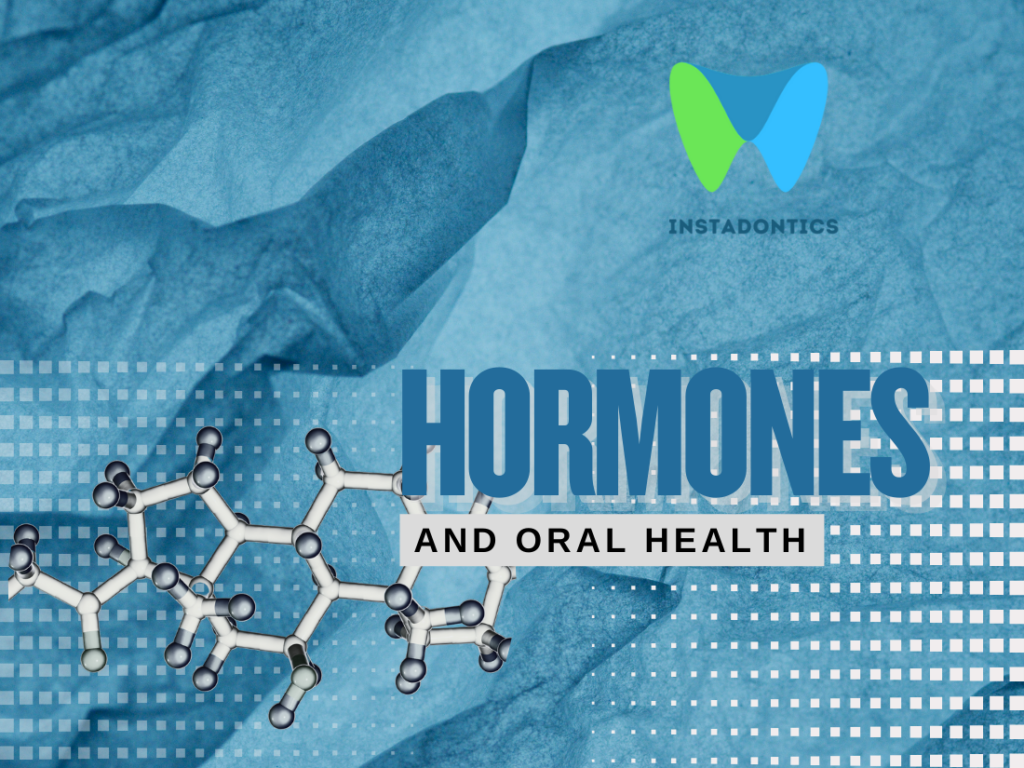What Your Mouth Reveals About Your Overall Health | Your mouth is more than just a gateway for food and drink—it’s a window into your overall health. The condition of your teeth, gums, and oral tissues can provide valuable insights into various systemic health issues. From gum disease to persistent bad breath, many oral health symptoms can be indicators of underlying medical conditions that may require attention. Understanding these signs and what they mean can help you take proactive steps to maintain both your oral health and general well-being.
In this guide, we will explore signs that your teeth and mouth can reveal about your overall health. By recognizing these signs and understanding their implications, you can catch potential health problems early and seek appropriate treatment.
Whether it’s bleeding gums, persistent dry mouth, or unusual lesions, each symptom has a story to tell about your health. Let’s delve into the intricate connections between your oral health and overall health, and learn how to interpret the messages your mouth is sending you.
What Your Mouth Reveals About Your Overall Health | signs
- Bleeding Gums
- What It Means: Could indicate gingivitis or periodontitis, both of which are gum diseases. It can also be a sign of vitamin C deficiency.
- Bad Breath (Halitosis)
- What It Means: Often caused by poor oral hygiene, but can also signal digestive issues, respiratory infections, or diabetes.
- Dry Mouth (Xerostomia)
- What It Means: Can be a side effect of medications, or a symptom of diabetes, Sjögren’s syndrome, or dehydration.
- Tooth Decay
- What It Means: Poor oral hygiene and a diet high in sugar can lead to cavities. It may also indicate a lack of fluoride.
- Mouth Sores
- What It Means: Can be caused by stress, hormonal changes, or immune system disorders. Persistent sores may indicate oral cancer.
- White Patches (Leukoplakia)
- What It Means: Could be a sign of irritation from tobacco use or poorly fitting dentures, and in some cases, a precursor to cancer.
- Red or Swollen Gums
- What It Means: Often a sign of gum disease, but can also indicate a vitamin deficiency or systemic conditions like diabetes.
- Loose Teeth
- What It Means: Can indicate advanced gum disease or osteoporosis, which weakens bones.
- Receding Gums
- What It Means: Often caused by gum disease, aggressive brushing, or aging. Can also be a sign of bruxism (teeth grinding).
- Jaw Pain
- What It Means: Could be a sign of temporomandibular joint disorder (TMJ), arthritis, or dental abscess.
- Tooth Sensitivity
- What It Means: Often indicates enamel erosion or gum recession, which exposes the underlying dentin.
- Discolored Teeth
- What It Means: Can be caused by smoking, certain foods and drinks, or poor oral hygiene. Intrinsic discoloration may indicate trauma or medication side effects.
- Metallic Taste
- What It Means: Could be a side effect of medications, or a sign of gum disease, respiratory infections, or metal poisoning.
- Swollen Tongue (Glossitis)
- What It Means: Can indicate allergies, infections, or deficiencies in iron, folic acid, or vitamin B12.
- Cracked or Chipped Teeth
- What It Means: Often due to injury, bruxism, or weakened enamel from acid erosion.
- Persistent Dry Lips
- What It Means: Can be a sign of dehydration, vitamin deficiencies, or exposure to harsh weather conditions.
- Burning Mouth Syndrome
- What It Means: Often linked to hormonal changes, nutritional deficiencies, or nerve damage.
- Pale Gums
- What It Means: Can indicate anemia or poor blood circulation.
- Overgrowth of Gum Tissue
- What It Means: Could be a side effect of medications like anti-seizure drugs, or a sign of hormonal changes.
- Difficulty Chewing or Swallowing
- What It Means: Could be a sign of oral cancer, neurological disorders, or gastrointestinal issues.
- Red Lesions
- What It Means: Can indicate oral thrush, herpes simplex virus, or other infections.
- Frequent Canker Sores
- What It Means: Often caused by stress, minor injuries, or acidic foods. Frequent sores may indicate an underlying health condition.
- Excessive Plaque and Tartar
- What It Means: Poor oral hygiene and diet high in sugars and starches can lead to plaque buildup, which can cause gum disease.
- Thickened Saliva
- What It Means: Can be a sign of dehydration, medications, or salivary gland disorders.
- Mouth Breathing
- What It Means: Can lead to dry mouth and increase the risk of gum disease and tooth decay. Often caused by nasal congestion or sleep apnea.
What Your Mouth Reveals About Your Overall Health
- Swollen Lymph Nodes
- What It Means: Could indicate an infection or, in rare cases, a malignancy.
- Foul Taste in Mouth
- What It Means: Can be a sign of dental infections, poor oral hygiene, or digestive issues.
- Teeth Grinding (Bruxism)
- What It Means: Often related to stress or anxiety, can lead to tooth damage and jaw pain.
- Gum Pockets
- What It Means: Deep pockets between the teeth and gums can indicate advanced gum disease.
- Persistent Sore Throat
- What It Means: Could be a sign of respiratory infections, acid reflux, or oral cancer.
- Enamel Erosion
- What It Means: Often caused by acidic foods and drinks, or conditions like acid reflux and bulimia.
- Dark Spots on Gums
- What It Means: Could be benign pigmentation or a sign of a more serious condition like melanoma.
- Loose Dentures
- What It Means: Ill-fitting dentures can cause sores and infections, and may indicate bone loss in the jaw.
- Frequent Infections
- What It Means: Recurrent infections in the mouth can signal a weakened immune system or underlying health issues.
- Biting Cheeks or Tongue
- What It Means: Often a result of misaligned teeth or stress-related habits.
- Altered Taste Sensation
- What It Means: Can be caused by medications, infections, or neurological conditions.
- Gum Boils (Abscesses)
- What It Means: Indicate a bacterial infection that needs prompt treatment.
- White Spots on Teeth
- What It Means: Often an early sign of tooth decay or fluorosis.
- Gum Recession
- What It Means: Can be caused by gum disease, aggressive brushing, or misaligned teeth.
- Painful Chewing
- What It Means: Could indicate cavities, gum disease, or TMJ disorders.
- Unexplained Weight Loss
- What It Means: Difficulty eating due to oral pain can lead to weight loss, which may indicate serious health issues.
- Facial Swelling
- What It Means: Can be a sign of dental abscesses or infections.
- Loose or Shifting Teeth
- What It Means: Often a sign of advanced gum disease or osteoporosis, which weakens the bones supporting your teeth.
- Persistent Metallic Taste
- What It Means: Can be a side effect of certain medications, or an indication of chronic kidney disease or heavy metal poisoning.
- Frequent Cavities
- What It Means: Poor oral hygiene, a diet high in sugar, or conditions like dry mouth can increase the risk of cavities.
- Red, Swollen Tonsils
- What It Means: Could indicate tonsillitis, strep throat, or other infections.
- Unusual Bumps or Lumps
- What It Means: Any unexplained growths in the mouth should be evaluated by a healthcare professional, as they could be benign or malignant.
- Difficulty Opening Mouth
- What It Means: Could be a sign of TMJ disorders, infections, or oral cancer.
- Constant Thirst
- What It Means: Persistent thirst can indicate diabetes, which also affects oral health by increasing the risk of gum disease and infections.
- Pus Between Teeth and Gums
- What It Means: A sign of a serious gum infection that requires immediate attention.
Summary of Key Points
Your oral health is a window into your overall health. The condition of your teeth, gums, and mouth can provide valuable insights into various systemic health issues. By paying attention to the signs and symptoms in your oral cavity, you can catch potential health problems early and seek appropriate treatment. Key points to remember include:
- Gum Health: Issues like bleeding, swelling, and recession can indicate gum disease, which is linked to heart disease and diabetes.
- Mouth Sores and Lesions: Persistent sores and unusual growths should be evaluated as they could signal infections or cancer.
- Tooth and Jaw Pain: Pain can indicate cavities, infections, or TMJ disorders.
- Dry Mouth: Often a side effect of medications, but can also indicate systemic conditions like diabetes.
- Oral Hygiene: Maintaining good oral hygiene is crucial for preventing many of these issues and improving overall health.
next steps | What Your Mouth Reveals About Your Overall Health
If you notice any of these signs or symptoms, it is essential to consult with a dental or healthcare professional for an accurate diagnosis and appropriate treatment. Here are some steps to take:
- Schedule Regular Dental Check-Ups: Regular visits to the dentist can help catch issues early and maintain good oral health.
- Maintain a Daily Oral Hygiene Routine: Brush twice a day with fluoride toothpaste, floss daily, and use an antimicrobial mouthwash.
- Stay Informed: Educate yourself about the potential oral health issues and their links to overall health.
- Consult Healthcare Providers: Ensure open communication between your dentist and healthcare provider to coordinate care effectively.
For more information on maintaining oral health and its connection to overall health, consult reputable sources such as the American Dental Association (ADA), the Centers for Disease Control and Prevention (CDC), and the National Institutes of Health (NIH). These organizations provide valuable resources and guidelines to help you stay informed and proactive about your health.
Further Reading and Resources
- American Dental Association (ADA): ADA Oral Health Topics
- Centers for Disease Control and Prevention (CDC): CDC Oral Health
- National Institutes of Health (NIH): NIH Oral Health
- MedlinePlus: Oral Health
By prioritizing specialized dental care and staying informed, you can significantly improve your oral and overall health, enhancing your quality of life.
Remember: The condition of your teeth, gums, and oral tissues can provide valuable insights into various systemic health issues. From gum disease to persistent bad breath, many oral health symptoms can be indicators of underlying medical conditions that may require attention.
- Dysgeusia: Causes, Symptoms, and Management
- Signs You Need to Visit Your Dentist
- Understanding Tooth Sensitivity
- The Link Between Diabetes and Gum Disease
- How Diet Affects Teeth Grinding | The Hidden Connection
- The Best Mouthwash for Gum Disease
- Can Tooth Pain Cause Ear Pain?
- Options for Replacing Missing Teeth



